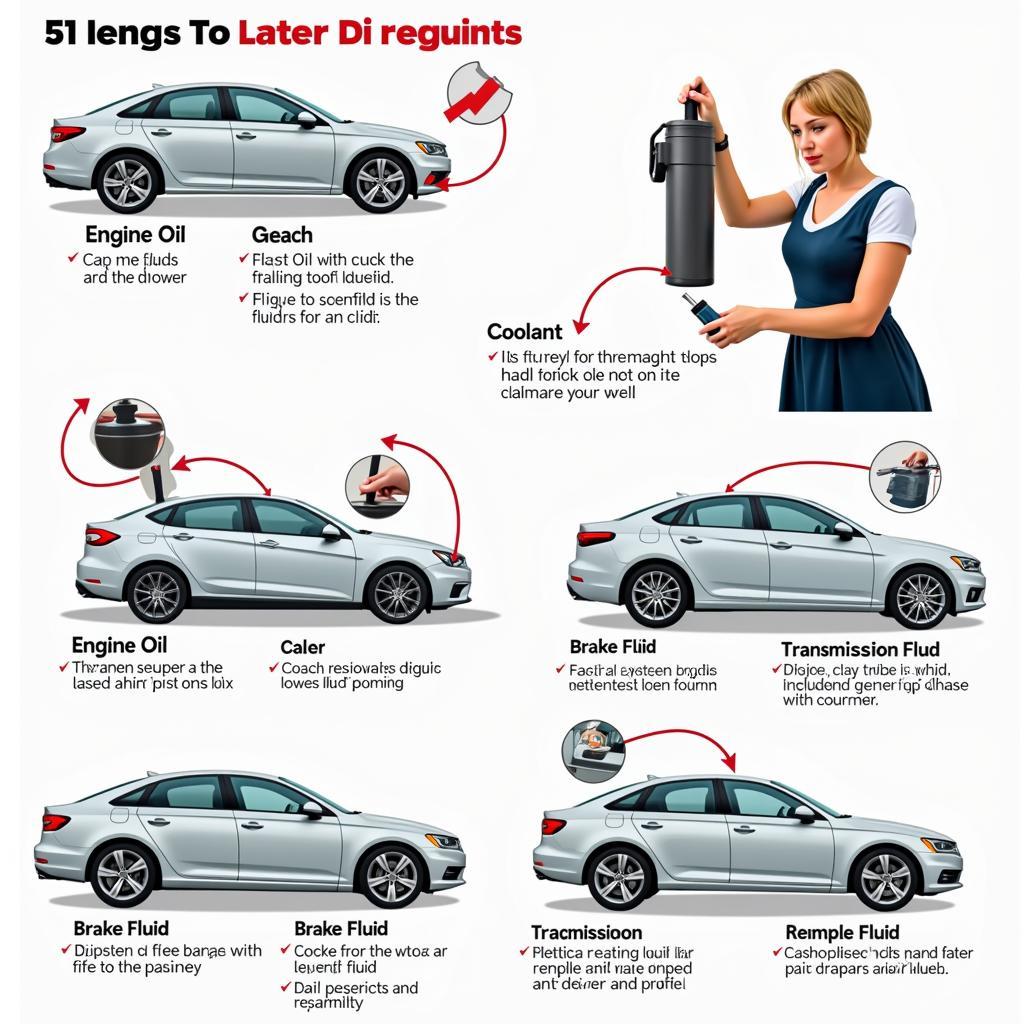Finding out your car needs repairs can be stressful, especially when you’re wondering, “How long does it take to have a car fixed?” Unfortunately, there’s no one-size-fits-all answer. The repair timeline depends on several factors, from the complexity of the issue to the availability of parts. This article dives deep into the various aspects affecting repair time, providing you with a realistic expectation and equipping you with the knowledge to navigate the car repair process effectively.
Factors Influencing Car Repair Time
Several factors play a crucial role in determining how long your car will be in the shop. Understanding these can help you manage your expectations and plan accordingly.
The Severity of the Problem
A simple oil change is vastly different from a transmission overhaul. Minor issues like a flat tire or replacing brake pads can often be addressed within a few hours. However, more complex problems involving engine work, electrical systems, or body damage can take several days or even weeks to diagnose and repair.
Parts Availability
Sometimes, the actual repair work isn’t the most time-consuming part. If the necessary parts aren’t readily available, it can significantly delay the process. Specialty parts, those for older or less common car models, might need to be ordered from the manufacturer, which can take days or even weeks to arrive.
Shop Backlog
Even with readily available parts, a busy repair shop might have a backlog of appointments. This means your car might sit for a few days before a mechanic can even begin working on it. Calling ahead and scheduling an appointment can sometimes help mitigate this delay.
Diagnostic Time
Before any repairs can begin, the mechanic needs to diagnose the problem accurately. Sometimes, the issue is obvious, but other times it requires extensive testing and troubleshooting. This diagnostic process can add a significant amount of time, particularly with intermittent or complex electrical problems.
How to Estimate Repair Time: Asking the Right Questions
When you take your car to a mechanic, don’t hesitate to ask questions about the estimated repair time. A reputable mechanic will be upfront about the potential timeframe, including factors that could affect it. Here are some key questions to ask:
- What is the estimated diagnostic time?
- Are the necessary parts readily available?
- How long will the actual repair work take?
- Is there a backlog of appointments that could delay the process?
Tips for Managing Car Repair Time
While you can’t always control how long a repair takes, here are a few tips to help manage the process:
- Schedule appointments: Booking in advance can sometimes help reduce wait times.
- Communicate clearly: Explain the symptoms to your mechanic in detail.
- Stay informed: Follow up with the shop to get updates on the repair progress.
- Consider alternative transportation: Plan for alternative transportation while your car is being repaired.
A Word from the Experts
“Accurate diagnosis is half the battle,” says John Smith, a seasoned automotive technician with over 20 years of experience. “Take the time to explain the issue thoroughly, even seemingly minor details, to help the mechanic pinpoint the problem quickly.”
“Parts availability can significantly impact repair timelines,” adds Sarah Jones, parts manager at a large automotive dealership. “If you have a less common car model, be prepared for potential delays in parts procurement.”
Conclusion
So, how long does it take to have a car fixed? While it varies, understanding the factors involved and asking the right questions can help you manage your expectations. Clear communication with your mechanic is key throughout the process. Need help with your car troubles? Contact AutoTipPro at +1 (641) 206-8880 or visit our office at 500 N St Mary’s St, San Antonio, TX 78205, United States. We’re here to help you get back on the road quickly and safely.
FAQ
- What if the repair takes longer than estimated?
- Can I get a loaner car while mine is being repaired?
- How can I prevent future car problems?
- What are some common signs of car trouble?
- How do I choose a reputable auto repair shop?
- What are my rights if a repair is not done correctly?
- What should I do if I disagree with the repair estimate?





Leave a Reply